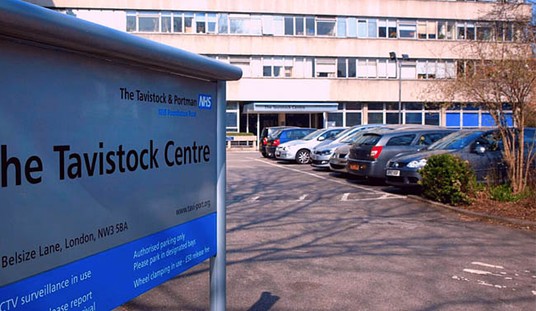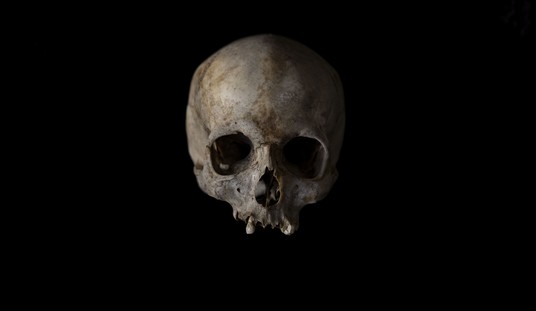It doesn’t happen very often, but sometimes I agree with the president. It happens even less often, but sometimes I agree with the president and his wife in one weekend. But President and Michelle Obama both delivered commencement speeches at historically black colleges worthy of praise.
First, President Obama spoke with the all-male graduating class of Morehouse College in Atlanta. There were, of course, parts of the speech I didn’t like—for instance, the rather transparently stump-speechy pitch for Obamacare, which came off even more cheesy when contrasted with his more eloquent observations. But what struck me is that parts of this speech read like the counter-argument to his terrible commencement speech at Ohio State University. The Ohio State speech exists in a universe where citizenship is almost entirely a function of one’s interactions with the government and its leaders, where avoiding cynicism means avoiding skepticism of government, where accomplishment is something we do together, by which he means with government. He offers lip service to the idea of the individual— mostly to caution against letting it overcome one’s ability to serve— but notably never offers any stories of individual triumph or the power of plain old charity, sacrifice, and community (the one that’s not just a stand-in for government).
The Morehouse speech was different. It had the usual Obama pablum, but it allowed the individual to take responsibility, to soar, to achieve, and in so doing bring the community with him.
But along with collective responsibilities, we have individual responsibilities. There are some things, as black men, we can only do for ourselves. There are some things, as Morehouse Men, that you are obliged to do for those still left behind. As Morehouse Men, you now wield something even more powerful than the diploma you’re about to collect — and that’s the power of your example.
More on personal responsibility:
“We know that too many young men in our community continue to make bad choices. Growing up, I made a few myself. And I have to confess, sometimes I wrote off my own failings as just another example of the world trying to keep a black man down. But one of the things you’ve learned over the last four years is that there’s no longer any room for excuses. I understand that there’s a common fraternity creed here at Morehouse: ‘excuses are tools of the incompetent, used to build bridges to nowhere and monuments of nothingness.’ We’ve got no time for excuses – not because the bitter legacies of slavery and segregation have vanished entirely; they haven’t. Not because racism and discrimination no longer exist; that’s still out there. It’s just that in today’s hyperconnected, hypercompetitive world, with a billion young people from China and India and Brazil entering the global workforce alongside you, nobody is going to give you anything you haven’t earned. And whatever hardships you may experience because of your race, they pale in comparison to the hardships previous generations endured – and overcame.
“You now hail from a lineage and legacy of immeasurably strong men – men who bore tremendous burdens and still laid the stones for the path on which we now walk. You wear the mantle of Frederick Douglass and Booker T. Washington, Ralph Bunche and Langston Hughes, George Washington Carver and Ralph Abernathy, Thurgood Marshall and yes, Dr. King. These men were many things to many people. They knew full well the role that racism played in their lives. But when it came to their own accomplishments and sense of purpose, they had no time for excuses.”
I appreciate his namecheck of Booker T. Washington among the pantheon of African-American heroes. When I was coming up in largely black public schools in North Carolina, it was en vogue to denounce Washington as a sell-out too willing to go along to get along with the white population of the south. To be sure, Washington’s famous philosophical debate with W.E.B DuBois, who contrasted his more active approach with Washington’s, is an important one but I never thought recognizing the disagreement made it necessary to denigrate or dismiss Washington’s legacy. I’m glad the president doesn’t either.
Obama also tells the stories of impressive individuals— an element missing entirely from his Ohio State speech:
One of today’s graduates, Frederick Anderson — where’s Frederick? Frederick, right here. (Applause.) I know it’s raining, but I’m going to tell about Frederick. Frederick started his college career in Ohio, only to find out that his high school sweetheart back in Georgia was pregnant. So he came back and enrolled in Morehouse to be closer to her. Pretty soon, helping raise a newborn and working night shifts became too much, so he started taking business classes at a technical college instead — doing everything from delivering newspapers to buffing hospital floors to support his family.
And then he enrolled at Morehouse a second time. But even with a job, he couldn’t keep up with the cost of tuition. So after getting his degree from that technical school, this father of three decided to come back to Morehouse for a third time. (Applause.) As Frederick says, “God has a plan for my life, and He’s not done with me yet.”
And today, Frederick is a family man, and a working man, and a Morehouse Man. (Applause.) And that’s what I’m asking all of you to do: Keep setting an example for what it means to be a man. (Applause.) Be the best husband to your wife, or you’re your boyfriend, or your partner. Be the best father you can be to your children. Because nothing is more important.
And, Leland Shelton:
When Leland Shelton was four years old — where’s Leland? (Applause.) Stand up, Leland. When Leland Shelton was four years old, social services took him away from his mama, put him in the care of his grandparents. By age 14, he was in the foster care system. Three years after that, Leland enrolled in Morehouse. And today he is graduating Phi Beta Kappa on his way to Harvard Law School. (Applause.) But he’s not stopping there. As a member of the National Foster Care Youth and Alumni Policy Council, he plans to use his law degree to make sure kids like him don’t fall through the cracks. And it won’t matter whether they’re black kids or brown kids or white kids or Native American kids, because he’ll understand what they’re going through. And he’ll be fighting for them. He’ll be in their corner. That’s leadership. That’s a Morehouse Man right there. (Applause.)
And, he spent some time on family and fatherhood in particular:
“I was raised by a heroic single mother and wonderful grandparents who made incredible sacrifices for me. And I know there are moms and grandparents here today who did the same thing for all of you. But I still wish I had a father who was not only present, but involved. And so my whole life, I’ve tried to be for Michelle and my girls what my father wasn’t for my mother and me. I’ve tried to be a better husband, a better father, and a better man.
“It’s hard work that demands your constant attention, and frequent sacrifice. And Michelle will be the first to tell you that I’m not perfect. Even now, I’m still learning how to be the best husband and father I can be. Because success in everything else is unfulfilling if we fail at family. I know that when I’m on my deathbed someday, I won’t be thinking about any particular legislation I passed, or policy I promoted; I won’t be thinking about the speech I gave, or the Nobel Prize I received. I’ll be thinking about a walk I took with my daughters. A lazy afternoon with my wife. Whether I did right by all of them.
“Be a good role model and set a good example for that young brother coming up. If you know someone who isn’t on point, go back and bring that brother along. The brothers who have been left behind – who haven’t had the same opportunities we have – they need to hear from us. We’ve got to be in the barbershops with them, at church with them, spending time and energy and presence helping pull them up, exposing them to new opportunities, and supporting their dreams. We have to teach them what it means to be a man – to serve your city like Maynard Jackson; to shape the culture like Spike Lee. Chester Davenport was one of the first people to integrate the University of Georgia law school. When he got there, no one would sit next to him in class. But Chester didn’t mind. Later on, he said, ‘It was the thing for me to do. Someone needed to be the first.’ Today, Chester is here celebrating his 50th reunion. If you’ve had role models, fathers, brothers like that – thank them today. If you haven’t, commit yourself to being that man for someone else.”
He is, of course, uniquely well-suited to give this message to the black community, and I always appreciate it when he does. I think one of the greatest forces for good the Obama presidency can boast is the example of Obama himself as a man who married the mother of his children, and sticks around to love and raise them. In his own example and in these excerpts, Obama is advocating a solution that is not entirely tied to a government program. In other speeches, he alludes to the existence of such things, but rarely advocates for them.
And, now I move on to agreeing with Michelle Obama, who offered this at the Bowie State University graduation in Maryland, urging the audience to “please stand up and reject the slander that says a black child with a book is trying to act white.”
A thousand times, yes. I saw first-hand this kind of negative peer pressure. Where I went to school, it was a tragic and chronic problem. As a white kid, it was expected and therefore accepted that I would be a book-reading, studying, class-attending nerd. It carried with it no more than the average social stigma a good student might incur. For my classmates, nerd stigma was too often combined with the powerful accusation of having betrayed one’s community and identity by joining the likes of me in, say, a science project win or on the rolls of an advanced English class. Thankfully, it was not enough to discourage many of my classmates, whom I continue to watch succeed on Facebook and when I visit home. But my heart aches for those it did and for those who face this pressure today in their own schools.
Michelle Obama is far more likely to get a receptive response for saying this than I would get for observing it, so I’m glad she’s the messenger, even though I don’t always agree with her.
And, now that I’m done with all that agreeing, it’s also important to mention that the Obamas, and many of the policies they support, serve to grow the very cultural forces they seem to condemn. It’s hard to get closer to abetting the grievance industry than aligning with the likes of Jeremiah Wright for 20 years, for instance. Nonetheless, the message itself is important, even if it’s undercut in other ways, and they’re powerful messengers for it.
I also take issue with this excerpt from the president’s Morehouse speech:
I might have been in prison. I might have been unemployed. I might not have been able to support a family. And that motivates me. (Applause.)
Obama’s been far too cavalier about unemployment in both of his commencement addresses, noting the “improving job market” that is “steadily healing,” which won’t be a lot of comfort to many of those who graduate into their parents’ basements. Here, he also seems to hint at the darker potential consequences of his former drug use, rather than just joke about smoking pot, as he usually does. The Obama Department of Justice has aggressively prosecuted marijuana cases, even where states have legalized it for medical use. Now that many states have decriminalized marijuana possession or recreational use, the administration must again wrestle with what tack it will take in enforcing federal drug law. May I suggest the president consider that minor marijuana possession arrests disproportionately affect young black men, and endanger their futures, when he’s deciding what DOJ should do about these new legalization laws. Too bad DOJ is a completely independent entity about which he knows nothing, huh?







Join the conversation as a VIP Member